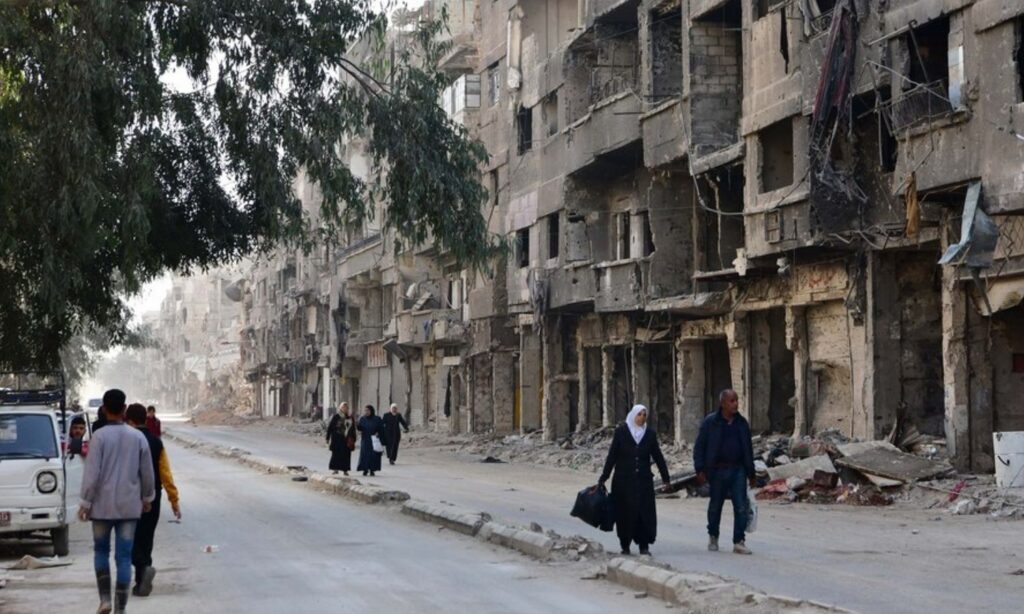The United Nations Development Program (UNDP) in Syria has launched a project to support residents of the Yarmouk and Tadamon neighborhoods in southern Damascus as part of early recovery projects.
Through a Facebook post on September 19, the program invited residents of the Yarmouk camp and the Tadamon neighborhood in Damascus to participate in activities to support return based on the area.
According to a form published by the program for those interested in participating, the project titled “Area-Based Return Support” is being implemented in cooperation with several UN agencies and international organizations, in coordination with Damascus governorate and the Yarmouk and Tadamon services department.
The project follows a participatory approach, allowing community members to engage in various activities aimed at achieving early recovery by providing job opportunities for residents suffering from poor living conditions. Simultaneously, they will participate in projects that benefit their area, according to the Action Group for Palestinians of Syria (AGPS) on Saturday, September 21.
The project includes a series of training workshops and dialogue sessions, in addition to implementing several community initiatives.
The program explained that participants would be selected based on criteria ensuring balanced community representation, with the last date for application being September 29.
In the same context, the UNDP office launched a youth empowerment project in Deir Ezzor on Wednesday, September 18, providing job opportunities in the field of gardening and maintenance.
The UNDP noted that applicants should hold a university degree in agricultural engineering and have practical experience of no less than three years in gardening and maintenance training.
The UN had announced last April its intention to launch a special early recovery program in Syria in the coming months, aiming to establish projects in various sectors.
Funding for these projects will come through the creation of a special fund providing a safe and legitimate mechanism under an international umbrella for some non-traditional donors, such as Gulf countries, to offer aid they cannot currently provide due to Western sanctions imposed on the Syrian regime.
The UNDP defines early recovery as “an approach addressing emerging recovery needs during the humanitarian response phase using humanitarian mechanisms aligned with development principles.”
This approach enables people to benefit from humanitarian work to seize development opportunities, build resilience, and establish a sustainable recovery process from the crisis.
The UN Humanitarian Coordinator in Syria, Adam Abdelmoula, said in a previous email correspondence with Enab Baladi that the trust fund planned for early recovery in Syria has several objectives.
According to Abdelmoula, these objectives include fostering a cooperative approach between humanitarian actors (who have spent hundreds of millions on uncoordinated early recovery activities without achieving significant impact) and providing a channel for bilateral donors, who are unable to direct resources to Syria due to the sanctions system. This alternative channel would be under multilateral auspices through the UN.
The fund also aims to allow donors, the UN, and NGOs to decide together what should be funded and where, maintaining a focus on key early recovery sectors (health, education, water, sanitation, hygiene, livelihoods, and electricity), according to Abdelmoula.
Abdelmoula pointed out that the planned fund to finance early recovery projects must have its secretariat outside Syria to prevent any “politicization.”
Countries participating in the 8th Brussels Conference at the end of May pledged financial aid amounting to 7.5 billion euros to support early recovery projects, a decrease of 2.1 billion euros compared to last year’s pledges, which amounted to 9.6 billion euros in 2023.

